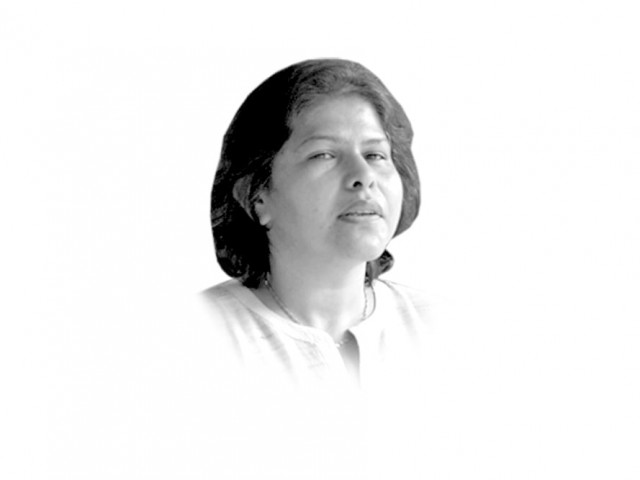For Musharraf’s Facebook fans
What compelled Musharraf to allow members elected under his patronage to pile up their assets so rapidly.

For Musharraf’s Facebook fans
Those who believe Asif Zardari is the country’s main problem are now happy to cite financial data as well.
It doesn’t take a rocket scientist to figure out why public support for democracy has come down to 45 per cent which is supposedly a commentary on the quality of elected representatives. Numerous media hawks in this country and even the Pildat report do not point out that the greater hike in the value of assets of parliamentarians actually happened during the Musharraf years. The readers of the study must refer to table 1 according to which the steep jumps in the worth of the assets of the parliamentarians took place in financial years 2004-2005 (15.6 per cent), 2005-2006 (22.6 per cent), and 2007-2008 (87.1 per cent). Comparatively, the percentage of increase under the political government (2008-2009) is limited to a 9.5 per cent increase from the previous year.
The dates point out the corrupting influence of the political system under Pervez Musharraf. The biggest flaw of the report is that it fails to analyse the dynamics of these figures. Contrary to the claims made by Musharraf and his political touts, the military dictator, who had legitimised himself with the promise of eradicating corruption, had begun to fan and encourage financial mismanagement. If anything, the report indicates how military regimes are unable to battle corruption because they themselves begin to use it as a tool to negotiate their own survival, which they consider essential for correcting the system. In fact, all military dictators fall in the trap of considering themselves essential for the state and giving direction to its political process.
Perhaps it will make sense for Musharraf’s Facebook fans to look at this data and ask the dictator about what compelled him to allow members elected under his patronage to pile up assets so rapidly. 87.1 per cent increase in one year raises eyebrows. The massive increase in assets coincides with Musharraf’s confrontation with the judiciary and the lawyer’s movement. Assuming that the value of assets was stated around July-August or August-September of 2007 (the time for declaring assets), it raises questions about what the general was up to. Did he dole out secret funds or had he begun to dole out resources in the previous year in a bid to build up the king’s party that is the PML-Q?
Had Pildat presented this analysis the public perspective might have been different about the democratic process. Perhaps then, the rating of the political process might have gone up from 45 per cent. In any case, the fact that people don’t approve of fledgling democratic governments in a weak democracy is nothing new to Pakistan. A similar analysis done in Latin America by Alfred C Stepan (a professor at Columbia) and JJ Linz (of Johns Hopkins) during the 1990s showed that people in praetorian societies (which have been militarised and are democratically weak) tend to remember the stability of military dictatorships when confronted with the initial instability of the political process.
People begin to feel the pinch of corruption which is naturally more exposed than what happens under military dictatorships. The Pildat report is a case in point. However, it is military intervention which contributes to the corruption of the system. Since Pakistan’s political system is patronage-based and political parties are extremely insecure, once in power parties tend to distribute goods and resources to their own clients. You need to build links and encourage dependence of your clientele on you as a patron while it is possible to do so. This is not to argue that politicians be allowed to engage in corruption. However, their mismanagement cannot be eradicated without strengthening the democratic process. Incidentally, providing the correct analysis as well as information is critical to the cleaning up of politics. After all, these ‘bad’ politicians are the only ones who are ever held accountable.
Published in The Express Tribune, September 26th, 2010.














COMMENTS
Comments are moderated and generally will be posted if they are on-topic and not abusive.
For more information, please see our Comments FAQ